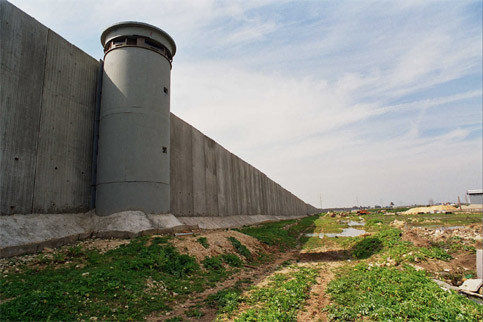During the election, when Trump was still just an annoyance, the obvious way to cut him off at the pass was to co-opt his issues. This is a tried and true way for establishments to neutralize outside challengers in electoral politics. In the case of Republicans, they just needed their guys to take immigration and trade seriously. A guy like Kasich was perfect, as he had been fairly good on both issues in his career. He could have been the reasonable guy and stolen both issues.
That did not happen, of course. Instead, all of the candidates went the exact opposite direction, thinking that their ticket to the winner’s circle was to be the most over-the-top anti-Trump loon on the ballot. It was a crazy thing to watch. No matter the reason, the decision has turned out to be a big one. In the fullness of time, it will be looked upon as one of those small decisions that had world changing consequences, and not just for Americans. News brings word that Mexico is looking for a Trump of their own.
Andrés Manuel López Obrador’s campaign rhetoric can make him sound like a Mexican Donald Trump.
The left-leaning front-runner in Mexico’s presidential race is overtly nationalistic, pushes “Mexican people first” policies and peppers his speeches with anti-establishment slogans that thrill the working-class Mexicans who flock to his rallies.
But while his style might be distinctly Trumpian, his policy prescriptions could not be more different. Indeed, the election of the former mayor of Mexico City could be disastrous for Trump and his administration, creating an even more charged relationship between the two countries that could reduce cooperation on border security, trade and immigration.
That worries U.S. politicians and business leaders, including House Homeland Security Chairman Mike McCaul (R-Texas), who was not shy about expressing his disdain for López Obrador at an event last fall hosted by the U.S.-Mexico Chamber of Commerce.
“I do not want to see President [López] Obrador take office next year,” McCaul said, adding he fears the Trump administration could increase those chances if it mishandles talks on revamping the 24-year-old North American Free Trade Agreement with Mexico and Canada.
We live in a time when every event will be cast as bad news for Trump, every Trump move will be bad news for us and all the good news will be pitched as bad news in the long run. This was the pattern in the Reagan years. The booming economy was always bracketed by stories about the homeless and stories about middle-aged men working at fast food joints. That is what we see here. Mexico electing a nationalist may or may not be bad news for Mexico, but it is unquestionably good news for Trump and America.
The one card the globalists have to play against the nationalists is that globalism promotes peace and cooperation among national elites. The rulers of European countries meet over cocktails and wildly expensive appetizers, rather than on the battlefield. Cooperation, between Mexican elites and American elites, means cordial relations between the two countries on issues like trade, drugs and migration. If every country is going for nationalists leaders all of a sudden, the globalists no longer have that card to play.
In the case of Mexico, their elites are so corrupt they make our elites look like good government idealists by comparison. As Steve Sailer is fond of pointing out, Mexico has been run by an organized crime family for generations. The Bush family is monstrous, but they are nowhere near as toxic as the Salinas family. That said, populism in that part of the world tends to mean crazy Marxists and deranged academics, who also happen to be Marxists. Making Mexico Venezuela is the most likely result of populism.
Still, the right answer for Americans is for our rulers to put pressure on Mexican elites to stem the flow of drugs and migrants into America. The dirty little secret is that the migrants coming over the border are not Mexicans. These are Central Americans given safe passage and aid by the Mexican government. The same is true of the drug trade, which is a key source of revenue for the Mexican ruling class. It is not an accident that Mexican Donald Trump is promising to amnesty drug war criminals.
The bigger issue though is a tough talking Mexican president would crystallize support in America for a hard line with Mexico. Americans may have doubts about Trump, but they will rally to his side in a dispute with a foreign leader. With a booming economy, fear of economic repercussions loses its bite. That and good times give American presidents more room to maneuver on the world stage. The last thing the Mexican ruling class needs right now is a head of state who is going to be a foil to Donald Trump.
The truth is the Mexican ruling class needs to be on good terms with America. If the cost of doing that is reining in their criminal element, that is good for the people of both countries. Mexico does not have to be Afghanistan, where warlords run the countryside, living off criminal enterprises. If Trump’s rhetoric helps put pressure on the Mexican political system, forcing a degree of responsible government on them, that is good for Mexicans and Americans. if not, then we just need to build a big wall on the border.



